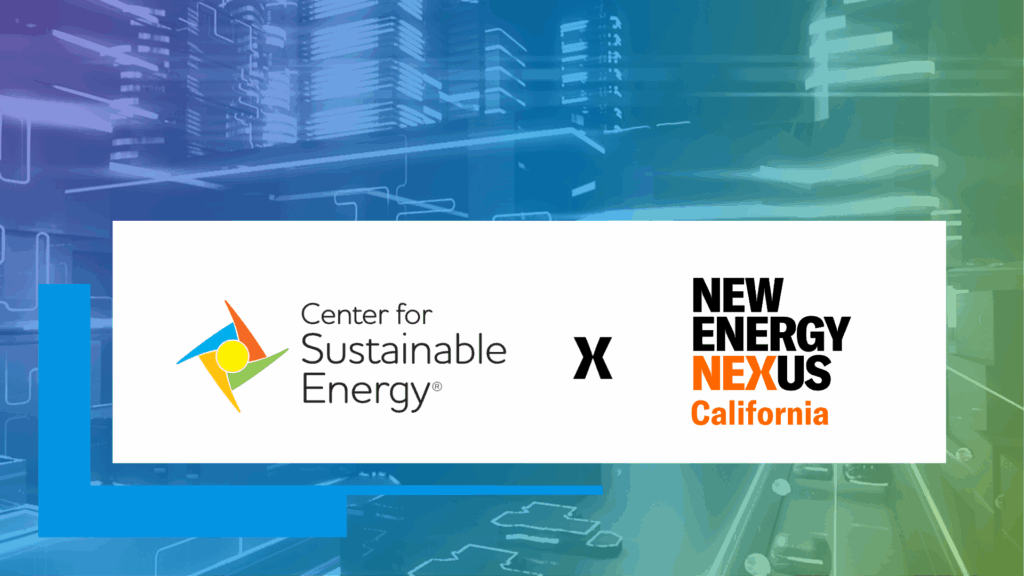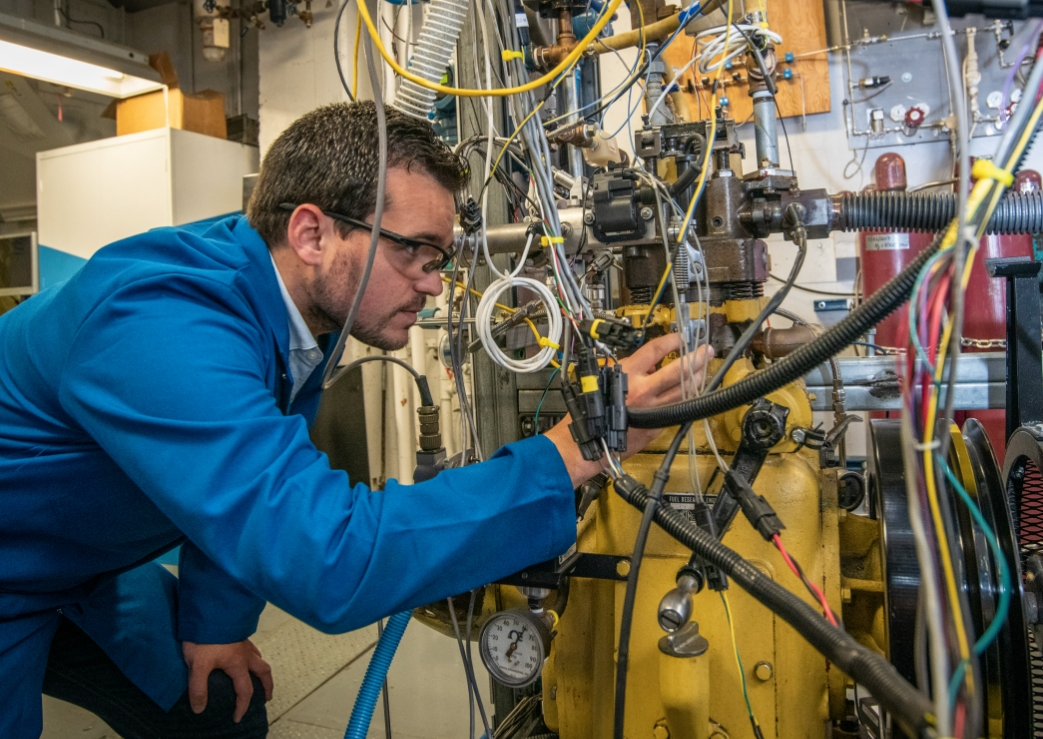
What do early-stage startups think about the IRA?
CalSEED’s Prototype Award winners represent the next generation of clean tech entrepreneurs…
The seven newest awardees – Startups Tolo, ALD Solutions, RePurpose, Gridware, Hago Energetics, Parthian Energy, and Leap Photovoltaics – were selected this year to receive CalSEED’s Prototype award of $450,000 to continue to develop their breakthrough innovations for batteries, storage, energy efficiency, and renewable generation.
Not only are they solving critical energy issues in California and beyond, but they are also positioning themselves to take advantage of the Inflation Reduction Act. As one the most significant climate related bill in US history, this could be a game changer for clean energy startups across the country.
Find out what these early stage startups think about the IRA.
RePurpose Energy
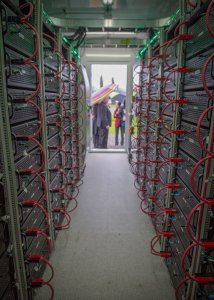
RePurpose Energy is creating a circular economy for EV batteries by creating reliable, low-cost “second-life” energy storage systems. Their turnkey solution involves testing, reassembling and redeploying used electric vehicle batteries for use as storage for solar energy. The repurposing of used EV batteries safely gives them 7-10 years in “second-life” as energy storage systems at around half the cost of new battery alternatives.
“In our view, the IRA is the single most important piece of climate legislation in US history, and it presents a myriad of opportunities for clean tech startups such as RePurpose Energy. Especially exciting are the investment and production tax credits. These incentives will reduce the capital costs of scaling our EV battery repurposing facilities, enhance the profitability of our second-life battery products, and augment our customers’ demand for solar PV + second-life battery systems. In addition, the bill will accelerate EV adoption, which will in turn increase available supplies of retired EV batteries.“ Joseph Lacap, CTO Repurpose Energy
Tolo
Tolo is making in-person inspection of utility infrastructure a thing of the past with their remote inspection platform. Tolo pairs state-of-the-art cameras with unmanned aerial vehicles (UAVs) and collects thousands of detailed photos from every angle of a utility tower, capturing images at greater detail than what is visible to an inspector in the field at a lower cost. Inspectors can view these images through a novel software application custom-built for utility inspection which provides them with advanced tools and greater inspection freedom and flexibility than field inspection, resulting in more accurate, shareable, monitorable inspections that drive better maintenance decisions and enhanced grid reliability. Remote inspection creates unique benefits impossible through traditional approaches, like inspection review by regulators, machine learning-assisted inspection, and year-over-year comparison.

“Tolo applauds the Inflation Reduction Act as a much-needed first step in the fight against climate change and a long-overdue investment in modernizing our aging energy infrastructure. Working in utility inspection, we know first hand the damage that inadequately maintained infrastructure can cause, and we look forward to helping support the newly created transmission infrastructure resulting from this bill. Many of the most innovative climate change solutions in clean energy have come from our startup peers, and we hope the IRA will help provide the investment these technologies and companies need to shine.” Thomas Karagianes, CEO Tolo
Hago Energetics

Hago Energetics is working to convert agricultural waste from dairy farms in the Central Valley of California into green hydrogen that can be used for long-haul trucking and industrial applications. Their technology works by processing biogas generated from cow manure waste in a novel chemical reactor to ultimately convert the biogas into hydrogen. Using just renewable energy as well as waste wood as a catalyst for this chemical conversion, makes their innovative process distinctly unique.
“It is encouraging to see the Federal government incentivize the production of clean hydrogen with the recently passed Inflation Reduction Act of 2022. The IRA allows us to obtain a Production Tax Credit of $3 per kg of hydrogen or an Investment Tax Credit of 30% given our expected negative carbon footprint. These incentives will enable us to attract investors quicker to our projects, for a faster deployment of our technology.” Wilson Hago, CEO Hago Energetics
Parthian Energy
Parthian Energy is dedicated to reducing the cost of battery manufacturing with an intelligent screening technology.
The “Parthian Electromagnetic Sensor (PES”) can detect internal defects in lithium-ion battery cells, which enhances safety and enables higher energy density cells to be deployed into EVs and grid storage with much less risk of lithium-ion batteries overheating. With additional CalSEED prototype funding they will develop a scalable prototype, demonstrate the feasibility of reducing the duration and cost of battery quality control, as well as perform pilot testing on a battery cell manufacturing line.

“A large portion of the most valuable businesses in history started as highly technical startups, at the right place and right time. The IRA can help provide the right conditions for the exponential growth of several key industrial sectors, provided that a meaningful portion of the funding reaches small businesses, who are developing groundbreaking new technologies. No amount of funding is enough, if the government stays too conservative and keeps feeding the incremental growth of the traditional technologies by the old businesses, who have not been able to invent new markets for decades.” – Mahshid Roumi, Co-founder and Vice President Parthian Energy
Leap Photovoltaics
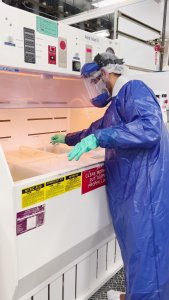
Leap Photovoltaics is developing a new process to manufacture solar cells. Their unique approach allows crystalline silicon solar cells to be built without wafers, instead directly depositing a layer of silicon microparticles to a surface that absorbs sunlight and converts it to electricity, achieving the same performance and reliability as traditional solar cells at half the cost using entirely local supply chains.
“The passing of the IRA also could not be more timely. The IRA provides strong incentives to manufacture not only solar modules, but also upstream components like solar cells here in the US. Leap is uniquely poised to take advantage of these incentives by linking the parts of the supply chain that already exist in the US and doing so with a manufacturing process that requires dramatically lower capex to bring online and dramatically lower cost in operation.
“Domestic ratepayers who now have easier access to demand-side subsidies through the modifications to the solar ITC and new PTC will also be able to reap the economic benefits of a domestic end-to-end supply chain, while also knowing that all the components in their solar panel were produced to the highest product, labor, and environmental standards.” David Berney Needleman, Founder and CEO Leap PV
Gridware
Gridware is working to create a future where suburban wildfires are a thing of the past. Using multi-sensory perception and edge AI, their wildfire prevention technology continuously monitors a grid that is smarter and more reliable than ever before. The system detects faults in the grid early and in real-time to enable inspectors to schedule timely repairs and rapidly respond to ignitions so disastrous wildfires can be avoided. With the CalSEED Prototype award, Gridware will advance analytical tool development and continue to improve fire prevention capabilities.
“Gridware already has established partnerships with co-operative utilities in California and Utah. Our products are well positioned to benefit from section 60201 of the IRA, as they enable these utilities to both adapt and mitigate against the negative impacts of climate change on their critical infrastructure, especially as it relates to wildfire ignition.” Timothy Barat, Co-founder & CEO Gridware
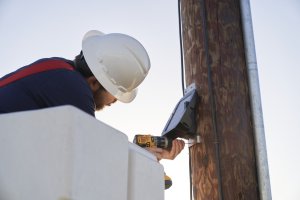
ALD Technical Solutions
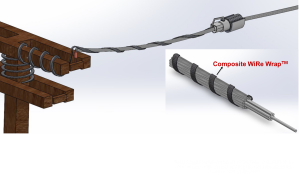
“[The] Inflation Reduction Act will not only drive the acceleration of clean energy growth but also it will boost the economy through clean energy and green jobs. Like the internet boom in the late 1990’s, [the] IRA will accelerate adaptation of clean energy and green jobs.” Davoud Zamani, CEO & Co-Founder ALD Technical Solutions
As our grid infrastructure is aging and becoming more stressed with new electricity generation sources, women-owned, clean-tech company ALD Technical Solutions is commercializing a patented novel technology that will structurally strengthen grid lines by using advanced hybrid composite materials.
ALD’s Composite WiRe Wrap increases ampacity, the power capacity of existing grid lines, and extends lifespan while also addressing thermal sagging, with NO downtime. This is a key requirement for achieving safe, resilient and reliable 100% renewable energy goals.
Utilities are building new lines to increase power capacity of grid lines and placing power lines underground to mitigate utility caused wildfires. Current approach is extremely expensive, and it takes many years. It would cost well over $100 billion to place across PG&E’s entire territory underground. At the current pace, moving all of California’s utility lines underground would take 1,000 years, according to the California Public Utilities Commission. ALD Technical Solutions’ Composite WiRe Wrap is a patented, lightweight, high strength, fast, easy to install, long lasting and cost-effective composite reinforcement system. This technology can withstand high temperatures and can be installed and cured in-place around existing power lines by our robotic installer.
About CalSEED
The CalSEED initiative is the first program in a robust energy innovation pipeline the California Energy Commision (CEC) has created with the Electric Program Investment Charge (EPIC) program. CalSEED provides two levels of funding: a Concept Award of $150,000 and a Prototype Award of $450,000. Each year, winners of CalSEED’s Concept Awards are eligible to compete for a Prototype Award in the annual Business Plan Competition put on in collaboration with national incubator CleanTech Open (CTO). Last fall, 23 CalSEED Concept Awardees participated in CTO, with 7 startups standing out to the judges due to their innovative efforts and solutions for batteries, storage, energy efficiency and renewable generation – areas that are critical to meeting California’s ambitious climate goals.
